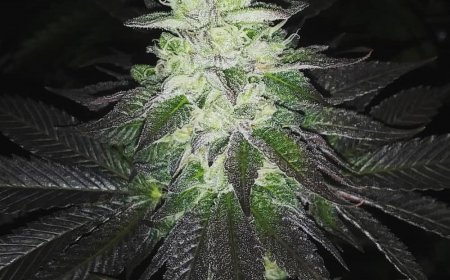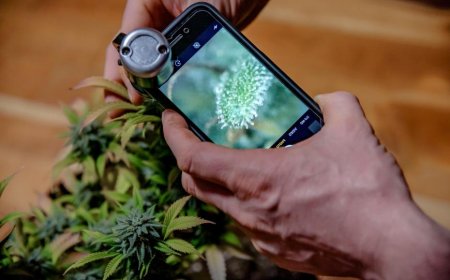The 5 Best Vape Herbs for Relaxation
Looking to unwind? Discover the 5 best vape herbs for relaxation, including chamomile and lavender, in our latest blog post. Perfect for a chill evening.
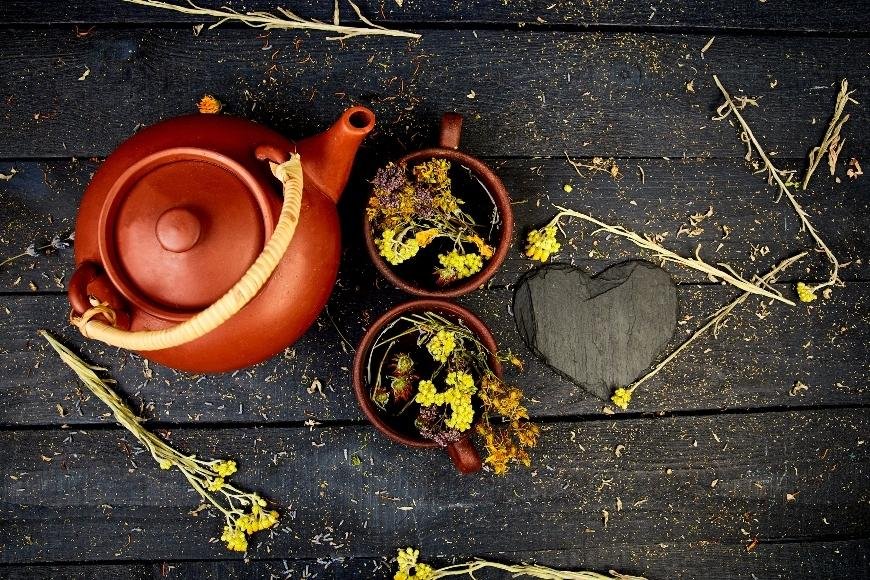
Discovering the 5 best vape herbs for relaxation is a journey that combines ancient wisdom with modern technology. As more people seek natural ways to unwind and destress, dry herb vaporizers have emerged as an excellent method of harnessing the power of these botanicals. This post will explore the advantages of vaping herbs to relax, analyze different types of herbs suitable for portable vaporizers and their distinctive effects.
We will also examine research on different herbs to help you make informed decisions when selecting your next calming blend. By understanding the nuances between each herb's properties and effects, you can tailor your experience to achieve optimal tranquility. So sit back, relax, and join us in uncovering the 5 best vape herbs for relaxation.
Table of Contents:
- Benefits of Vaporizing Herbs for Relaxation
- A Healthier Alternative to Smoking
- Promotes Relaxation and Stress Relief
- Pain Relief and Muscle Relaxation
- Types of Herbs to Vaporize
- Researching Different Herbs
- FAQs in Relation to The 5 Best Vape Herbs for Relaxation
- Conclusion
Benefits of Vaporizing Herbs for Relaxation
Vaporizing herbs has become an increasingly popular method for relaxation and stress relief among young adults. By using a vaporizer, you can enjoy the soothing effects of various herbs without the harmful byproducts associated with smoking. This article will delve into the advantages of utilizing vaporizers for relaxation and how it can enhance one's overall health.
A Healthier Alternative to Smoking
As an alternative to smoking, vaporizers provide a healthier option by heating herbs at lower temperatures and avoiding the release of toxins. When you smoke, combustion occurs at high temperatures, which releases toxins and carcinogens into your lungs. On the other hand, vaporizers heat herbs at lower temperatures, allowing you to inhale their active compounds without producing harmful substances. This makes vaping not only more enjoyable but also safer for your health.
Promotes Relaxation and Stress Relief
Vaporizing specific herbs can induce feelings of calmness and tranquility in users. At times of heightened tension, or when needing to de-stress after a busy day, the calming effects of vaporizing certain herbs can be incredibly beneficial. The gentle warmth produced by the vaporizer helps release essential oils from the herb's plant material while preserving its therapeutic qualities.
Anxiety Reduction
- Chamomile: Known for its calming effects on both body and mind, chamomile has been used as an herbal remedy since ancient times to help with anxiety disorders.
- Lavender: Lavender is another widely recognized herb that boasts powerful anti-anxiety properties due to its rich content of linalool - a compound that interacts with the brain's neurotransmitters and may reduce anxiety.
Improved Sleep Quality
- Valerian Root: Valerian root is a popular herbal remedy for insomnia, as it contains compounds that may help induce sleep and improve its quality. Vaporizing valerian root can provide relief from sleep disorders without causing any unwanted side effects often associated with prescription medications.
- Kratom: Kratom leaves have been used traditionally in Southeast Asia to treat various ailments, including insomnia. When vaporized, kratom may help promote restful sleep by interacting with the brain's opioid receptors - thus providing sedative-like effects.
Pain Relief and Muscle Relaxation
In addition to promoting relaxation and reducing stress levels, some herbs also possess analgesic properties when vaporized. This makes them effective natural remedies for alleviating pain and muscle tension caused by physical strain or injury.
- Kratom: As mentioned earlier, kratom has multiple therapeutic benefits - one of which includes its ability to relieve pain due to its interaction with the body's opioid receptors. Therefore, skullcap is an excellent option for those seeking a natural remedy to address pain.
- Skullcap: Skullcap is another herb known for its potent analgesic properties. It has been widely used in traditional medicine practices as a remedy for headaches, muscle spasms, and other forms of bodily discomforts due to its rich content of flavonoids - compounds that exhibit anti-inflammatory effects on the body.
Vaporizing herbs offers numerous advantages over smoking while still delivering their therapeutic benefits effectively. By incorporating these relaxing herbs into your vaping routine, you can enjoy a healthier and more enjoyable way to unwind, reduce stress, and improve your overall well-being. Remember to always consult with a healthcare professional before using any herbs for medicinal purposes.
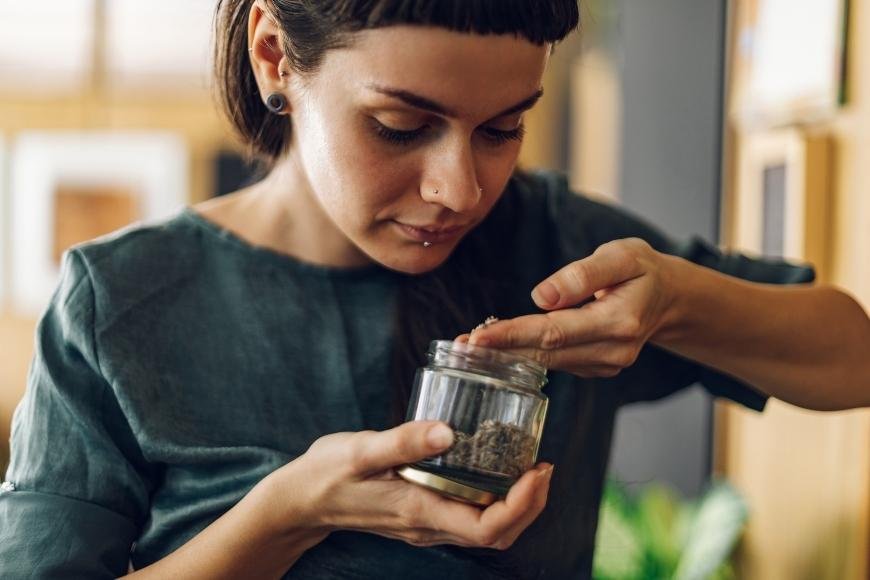
Types of Herbs to Vaporize
Vaporizing herbs has become a popular method for relaxation, offering an alternative to smoking and providing users with the benefits of various plants without the harmful effects associated with combustion. Five herbs that can be vaporized for relaxation purposes include chamomile, lavender, kratom, skullcap and valerian root.
Chamomile
Chamomile is a well-known herb used in teas and other remedies due to its calming properties. When vaporized at temperatures between 190°C-200°C (374°F-392°F), it releases compounds such as bisabolol and chamazulene which have been linked to reducing stress levels and promoting sleep. Chamomile also contains apigenin - a compound known for its mild sedative effect.
Lavender
A popular choice among aromatherapy enthusiasts, lavender is another excellent herb to consider when looking for relaxing vape options. With its pleasant scent and soothing properties attributed mainly to linalool - one of the primary terpenes found in lavender - it's no wonder why this plant has been used historically as a natural remedy against anxiety and insomnia. To enjoy these benefits through vaping, use dried lavender flowers at temperatures around 130°C (266°F).
Kratom
An increasingly popular herbal supplement originating from Southeast Asia, kratom is derived from the leaves of the Mitragyna speciosa tree. Kratom contains alkaloids such as mitragynine and 7-hydroxymitragynine, which are known to have both stimulating and sedative effects depending on dosage. Vaporizing kratom at certain temperatures can offer users a sense of tranquility, relaxation and respite from pain.
Skullcap
Skullcap, or Scutellaria lateriflora, is an herb native to North America that has been used traditionally for its calming properties. It contains flavonoids like baicalin and wogonin which may help reduce anxiety levels by interacting with GABA receptors in the brain - a neurotransmitter responsible for regulating feelings of fear or stress. To vaporize skullcap effectively, use dried aerial parts of the plant at temperatures around 190°C (374°F).
Valerian Root
Last but not least on our list is valerian root, another well-known herbal remedy often used as a sleep aid due to its mild sedative effect attributed mainly to valerenic acid - one of its active compounds. When vaporized at temperatures between 235°C-245°C (455°F-473°F), valerian root releases this compound along with other relaxing terpenes like myrcene and limonene providing users with an overall sense of tranquility.
Incorporating these herbs into your vaping routine can offer a natural and effective way to unwind after a long day. Before trying any herbal remedies, it's important to consider how your body might react and consult a healthcare professional for advice. Always consult with a healthcare professional before using any new herbal remedies, especially if you are pregnant, nursing, or taking medications.
Researching Different Herbs
Before diving into the world of vaporizing herbs for relaxation, it's essential to do your homework and learn about each herb's properties, potential benefits, and possible side effects. By researching each herb's characteristics, potential advantages and possible risks, you can make educated choices about which herbs are right for your requirements and guarantee a secure and pleasurable experience.
Finding Reliable Information
It is essential to depend on trustworthy websites that supply exact data supported by scientific evidence or expert opinions when searching for information about different vaping herbs. It's crucial to rely on reputable websites that provide accurate information backed by scientific research or expert opinions.
Talking to Professionals
In addition to researching online resources independently, consulting with healthcare professionals knowledgeable about herbal medicine can be invaluable when exploring different vape herbs for relaxation purposes. They may offer personalized recommendations based on your specific needs or suggest alternative therapies if certain herbs aren't suitable for you. Some professionals to consider reaching out to include:
- Naturopathic doctors: These practitioners specialize in natural medicine and can provide guidance on using herbs safely and effectively.
- Herbalists: Experts in the field of herbal medicine, they possess extensive knowledge about various plants' properties, uses, and potential interactions with other substances or medications.
- Acupuncturists or Traditional Chinese Medicine (TCM) practitioners: Many TCM professionals are well-versed in the use of medicinal herbs as part of their holistic approach to healthcare.
Potential Side Effects and Interactions
While many vape herbs have a long history of traditional use for relaxation purposes, it's essential to be aware that some may cause side effects or interact negatively with certain medications. For example:
- Passionflower, while known for its calming effects, can potentially cause drowsiness when combined with sedative medications such as benzodiazepines.
- St. John's Wort, often used for mild depression and anxiety relief, has been reported to interact negatively with several prescription drugs like antidepressants and birth control pills due to its impact on liver enzymes responsible for drug metabolism.
To minimize risks associated with vaping herbs, always start at a low dosage before gradually increasing it if needed. Before incorporating any new herbs into your routine, always consult a healthcare provider to ensure that it won't interfere with existing medications or medical conditions.
Experimenting with Different Herbs
Ultimately, finding the best vape herbs for relaxation is a personal journey that may involve some trial and error. Each individual's body chemistry and preferences are unique, so what works well for one person might not be as effective for another. Don't hesitate to experiment with different herbs or even create custom blends tailored to your specific needs - just remember always to prioritize safety and research each herb thoroughly before use.
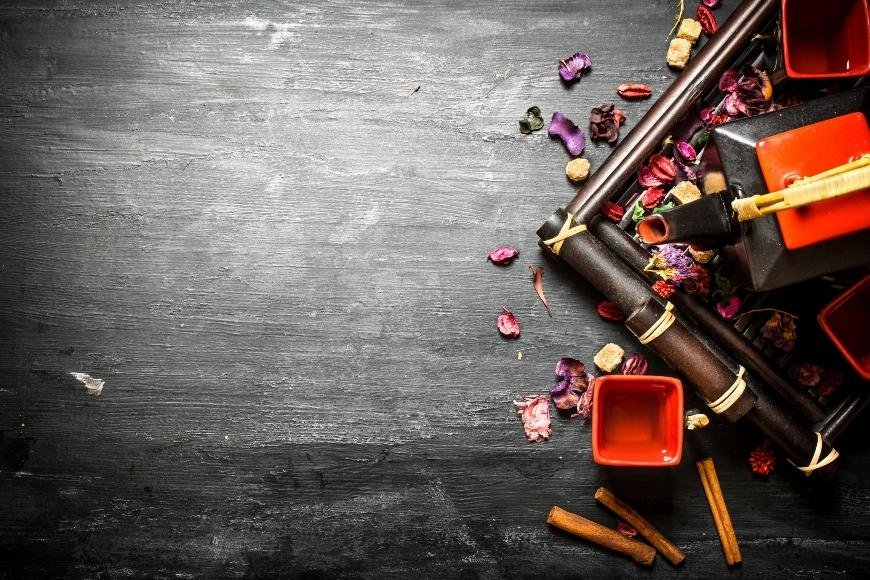
FAQs in Relation to The 5 Best Vape Herbs for Relaxation
What Herbs Are Best to Use in a Dry Herb Vape?
The best herbs for dry herb vaping include chamomile, lavender, lemon balm, passionflower, and valerian root. These herbs offer various relaxation benefits such as reducing anxiety, promoting sleep, and relieving stress. Always ensure you're using high-quality organic herbs for the best experience.
What Is the Best Herb to Vape for Sleep?
Valerian root is considered one of the most effective herbs to vape for promoting sleep. It has been used traditionally as a natural remedy to treat insomnia and improve overall sleep quality. Other helpful options include chamomile and lavender which also have calming effects that aid in restful slumber.
Is There a Vape Specifically Designed for Relaxation?
While there isn't a specific "relaxation" vape device on the market, many vaporizers can be used with relaxing herbal blends or CBD e-liquids that promote calmness and stress relief. Dry herb vaporizers are particularly suitable when it comes to using various botanicals known for their soothing properties.
How Unhealthy Is Dry Herb Vaping?
Dry herb vaping is generally considered safer than smoking since it doesn't involve combustion or produce harmful toxins associated with burning plant material. However, some risks may still exist depending on factors like temperature settings and potential contaminants within your chosen herbal blend.
Conclusion
By vaporizing herbs, you can experience relaxation without the harmful effects of smoking. The five best vape herbs for relaxation are lavender, chamomile, passionflower, valerian root, and damiana.

